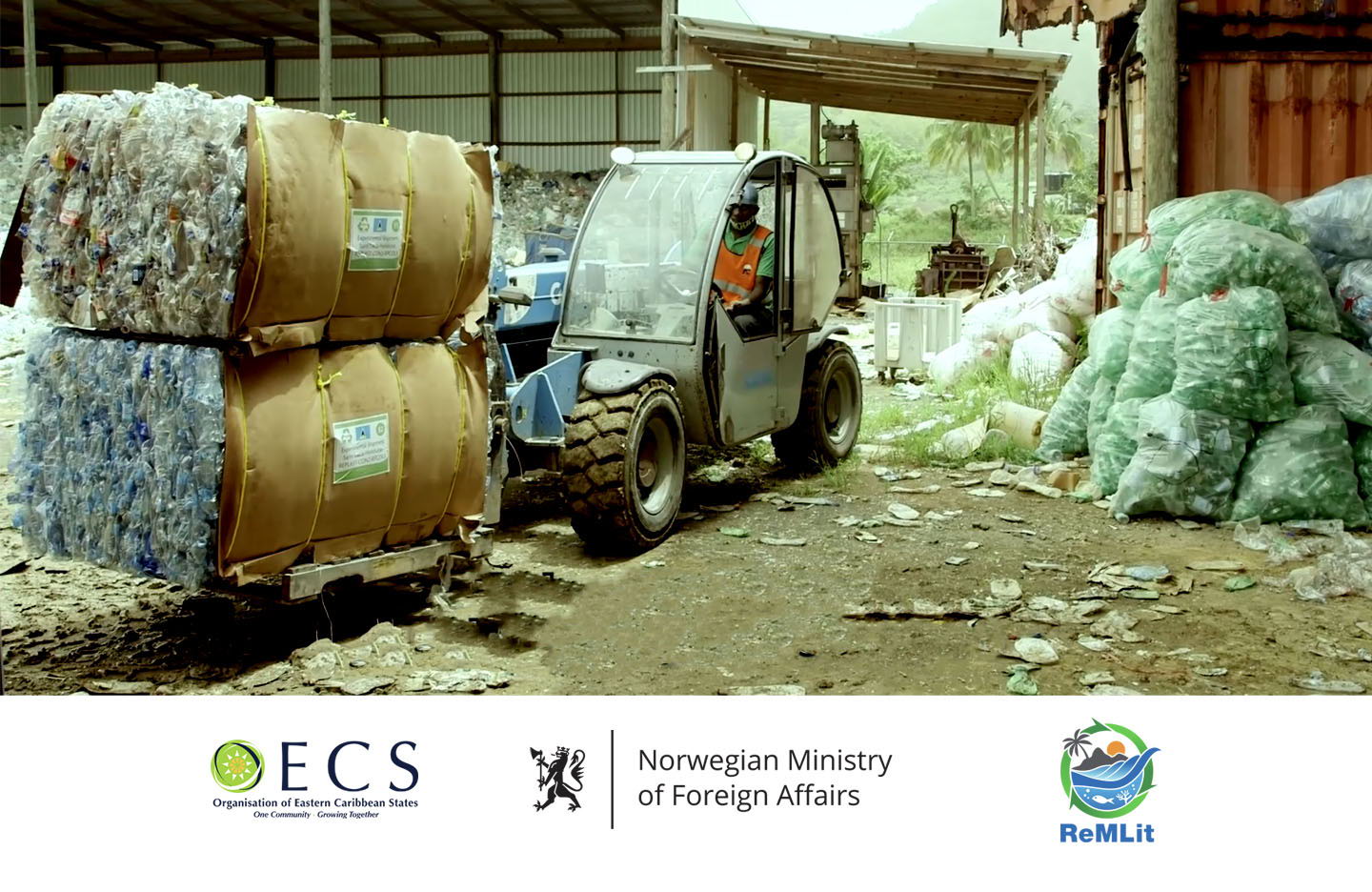Best Practice in Waste Management Identified for Adoption Across the OECS
OECS Media Release
The increasing amount of waste generated is a problem for all Member States of the OECS. That problem is becoming more acute due to diminishing space in sanitary landfills. OECS countries are also vulnerable to marine litter impacts due to financial and institutional challenges in properly managing waste. However, the convenience which plastic affords and the prevalence with which single-use plastic products are mismanaged and discarded creates problems for solid waste management authorities, users of recreational beach facilities, and organisms and other life forms in the terrestrial and marine environment. and the OECS, Minister Peters was also selected by the WTO Director-General as a Minister-Facilitator for the thematic discussions on electronic commerce.
Given the challenges of finding additional space for waste disposal and concerns regarding marine pollution, the islands of the OECS must now consider what measures they can introduce to reduce waste generation, while also finding effective ways to manage their waste.
Among the critical outcomes for OECS Member States from the implementation of the project “Building Resilience in the Eastern Caribbean through Reduction in Marine Litter” (ReMLit) are new national and regional waste management policy frameworks, which will encourage countries to apply both the zero waste and circular economy principles with the view to reducing waste generated.
A recently concluded ReMLit investigation of waste management best practices for adoption across the OECS Member States, verified the urgent need for, and proposed regulatory frameworks, which, once adopted, will facilitate the management of waste such that plastics, organics and other valuable items that are in the waste stream, allowing these to be captured and brought back into circulation through recycling, reuse, composting, among other actions.
The Study noted that increased levels of waste generation are a global problem, but for Small Island Developing States like the OECS, it is not an issue that the islands can resolve individually. As such, coordination, collaboration and harmonized frameworks are vital, given the transboundary nature of marine pollution and the aspirations for the adoption of a circular economy in the region. The proposed policy frameworks are premised upon regional level leadership in ensuring the adoption of best practices at the national, regional, and international levels. The policy frameworks promote new modalities to respond in a manner that would lessen the financial burden and environmental costs anticipated from continued poor waste management.
Other key recommendations were made with respect to source separation, creating the enabling environment for increased private investment in waste management, public-private partnerships, and deposit-refund systems (DRS).
Major Revenue Sources

Table 6 below the current major funding sources of solid waste management agencies in the OECS ReMLit participating countries.
Design of an OECS Incentive Programme For Reduction in Marine Litter .pdf
PDF 631 KB
According to the Study, the best practice in reducing and recycling waste starts with separating waste at the source. This allows for the highest percentage of returns on recyclable items, as this practice ensures the collected waste is suitable, and, in the case of organics, is not contaminated. The high volume of plastics in the waste stream and the options available for recycling suggest the need to consider both export opportunities and the remanufacture of some items, and their potential to support more jobs within the Waste Value chain.
The treatment of the collected organic waste is also identified as being equally effective by composting or anaerobic digestion (AD), depending on its characteristics. Composting can be delivered at a small scale with limited infrastructure, whilst AD typically requires a more complex range of infrastructure. Project-specific elements will need to be considered when deciding the most appropriate treatment technology type, as will the use of the output product as they are substantially different.
The Study recommends that financing for implementing necessary measures must also be considered, as the current system relies heavily on government financing, which is unsustainable in the long term. Therefore, cost recovery measures must be incorporated into waste management plans to create more sustainable financing options and reduce dependence on government outputs. Additionally, public-private partnerships, deposit-refund systems (DRS), and other options can provide sustainable sources of funding for waste management activities and contribute to economic growth.
Moreover, the findings of the Study note that consideration needs to be given to investing in mechanised sorting facilities and adopting accompanying legislative instruments at the country level. The use of best practices can ensure that action taken will be more likely to achieve the desired impacts and create progress in reducing the quantities of waste entering the environment.
These and other considerations make a strong case for regional collaboration in waste management, as actions at a regional level allow for the pooling of resources, which helps to scale-up benefits through economies of scale.
About the ReMLit Project:
The ReMLit Project is implementing a number of priority actions under the Eastern Caribbean Regional Ocean Policy (ECROP), an OECS-wide framework for regional coordination of sustainable development, management and conservation of ocean resources. ReMLit is implementing these actions under two components. A National Component which is funding specific interventions in Antigua and Barbuda, Dominica, Grenada, Monserrat, Saint Lucia, St. Vincent and the Grenadines which contribute to the resilience of marine ecosystems through a reduction in marine litter.
Two significant outputs of the regional component are the drafting of OECS Model Policy and Legislation for Effective Waste Management and the development and adoption of guidelines and fiscal and other incentive programs to promote a circular economy, reduce plastics and Styrofoam use, and encourage recycling, reuse, waste reduction, diversion and effective disposal on the OECS.
Susanna DeBeauville-Scott
OECS Communications Unit
